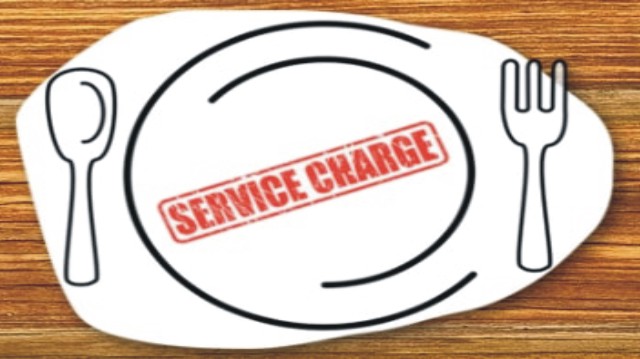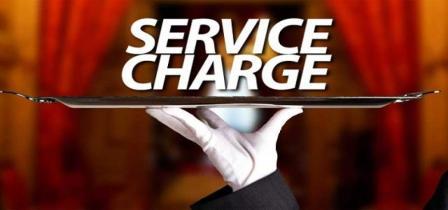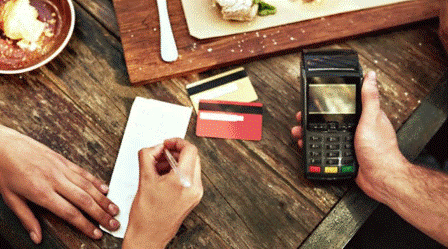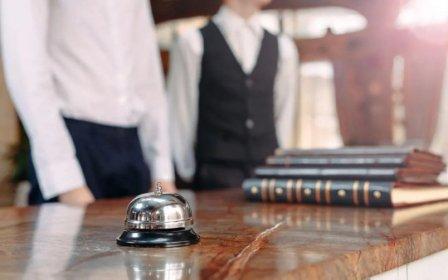

Service sector contributes about 59% of our GDP and plays a crucial role in tax collection too. One of the important services belongs to hospitality sector, i.e., hotels and restaurants. The common perception is that services in hotel and restaurant industry are not considered as a necessity but is driven by the choice of consumers or guests.
The ability to pay or affordability of such services is directly linked to luxury in various forms and/or value added services. It is a common practice (and not new) by hotels and restaurants to levy ‘services charges’ by the same name or any other name as a part of total cost which may or may not be disclosed separately in the invoice.
Hotels and restaurants charge service charge at a fixed percentage of the invoice value, say from 1 percent to 20 percent as may be fixed by them. Generally, these are of fixed nature and disclosed in menu or price list and charged accordingly.
 The issue of levy of service charges has been in dispute for many years now. During the pre-GST service tax regime, many such outlets were charging service charge and consumers used to confuse it with service tax so much so that the Government had to clarify that service charge is not a service tax and it does not go to the Government. The objection to levy of service charge is basically on restaurants / hotels making such service charges compulsory and adding it in the bill in such a way that it appears that such charge is not optional or voluntary but an integral part of bill.
The issue of levy of service charges has been in dispute for many years now. During the pre-GST service tax regime, many such outlets were charging service charge and consumers used to confuse it with service tax so much so that the Government had to clarify that service charge is not a service tax and it does not go to the Government. The objection to levy of service charge is basically on restaurants / hotels making such service charges compulsory and adding it in the bill in such a way that it appears that such charge is not optional or voluntary but an integral part of bill.
Service charge in Service Tax regime
During the service tax regime, service tax was levied on restaurant services w.e.f. 1.5.2011, i.e. on “any service provided or to be provided to any person, by a restaurant, by whatever name called, having the facility of air-conditioning in any part of the establishment, at any time during the financial year, which has licence to serve alcoholic beverages, in relation to serving of food or beverage, including alcoholic beverages or both, in its premises”.
It was clarified by CBEC vide Letter No. DOF 334/3/2011-TRU dated 28.02.2011 that “……….another arrangement is whereby the restaurant separates a certain portion of the bill as service charge. This amount is meant to be shared amongst the staff who attend the customers. Though this amount is exclusively for the services it does not represent the full of value of all services rendered by the restaurants.
Nature of service charge
As also clarified by erstwhile CBEC, nature of service charge was that of service charge (not tax) meant for sharing among the staff attending the customers, i.e. in lieu of tips.
The nature of service charges being dolled out to serving staff as ‘tips’ will adversely impact them and directly hit their pocket. They may in turn want the pay hike from the employers. This may in turn affect consumers only as restaurants may increase the food prices.
New CCPA Guidelines
Recently, Union Ministry of Consumer Affairs came out with a directive on 4th July, 2022 that new guidelines that no hotels or restaurants can add service charge automatically or by default in the food bill, i.e, it is not a mandatory levy. Accordingly, Central Consumer Protection Authority (CCPA) has issued guidelines for preventing unfair trade practices and violation of consumer rights with regard to levying of service charge in hotels and restaurants.
 Consumer may lodge a complaint on the National Consumer Helpline (NCH) against the service charged. Complaint can also be filed electronically through e-daakhil portal for speedy and effective redressal.
Consumer may lodge a complaint on the National Consumer Helpline (NCH) against the service charged. Complaint can also be filed electronically through e-daakhil portal for speedy and effective redressal.
The guidelines issued by CCPA stipulate that hotels or restaurant shall not add service charge automatically or by default in the food bill. No collection of service charge shall be done by any other name.
No hotel or restaurant shall force a consumer to pay service charge and shall clearly inform the consumer that service charge is voluntary, optional and at consumer’s discretion.
No restriction on entry or provision of services based on collection of service charge shall be imposed on consumers. Service charge shall not be collected by adding it along with the food bill and levying GST on the total amount.
The guidelines per se don’t deny levy of service charge but stipulate the manner of collecting service charges holding that:
• no addition of service charge automatically or by default in food bill.
• service charge not to be collected by any other name (such as convenience fee or reservation charges etc).
• Consumers not be forced to pay service charge.
• Consumers to be clearly informed that service charge is voluntary, optional and at discretion of consumer.
• Entry or provision of service can not be denied based on collection or otherwise of service charge.
It has been clarified by the CCPA that such guidelines are enforceable by law and are not just advisory is nature. The district collectors have power to take cognizance of complaints and take appropriate action.
Remedy before Consumers
If any consumer finds that a hotel or restaurant is levying service charge in violation to the guidelines, a consumer may make a request to the concerned hotel or restaurant to remove service charge from the bill amount. Also, the consumer may lodge a complaint on the National Consumer Helpline (NCH), which works as an alternate dispute redressal mechanism at the pre-litigation level by calling 1915 or through the NCH mobile app.
 The consumers may also file a complaint against unfair trade practice with the Consumer Commission. The Complaint can also be filed electronically through e-daakhil portal (www.e-daakhil.nic.in) for its speedy and effective redressal.
The consumers may also file a complaint against unfair trade practice with the Consumer Commission. The Complaint can also be filed electronically through e-daakhil portal (www.e-daakhil.nic.in) for its speedy and effective redressal.
Furthermore, the consumer may submit a complaint to the District Collector of the concerned district for investigation and subsequent proceeding by the CCPA. The complaint may also be sent to the CCPA by e-mail at com-ccpa@nic.in.
Right of Consumers
The consumers who are asked to by service charge can take any of the following steps:
a) Ask the service provider to remove service charges from the bill.
b) Not to pay the service charge component in the bill
c) Lodge a compact with National Consumer Helpline @ 1915
d) File formal complaint with District Consumer Forum or Distinct Collector
e) Legal action
Legal view
While it may appear that there is nothing illegal in charging of service charges or charging any amount as service charges, so long as it is known to the customer in advance. The charge of service charge or non-levy should not be mandated and left to the parties. It should be known to parties before placing the order. Those who may object may decide not consume the services there.
Opposition to Guidelines
Restaurants have objected to such a move of banning service charges citing that such a ban is not legal and have filed a petition before Delhi High Court. Moreover, it will de-motivate the staff and if compensated by employees, add to cost. In any case, customer is going to be burdened. It is also a fact that not all eateries levy service charge but only 15-25 percent of them levy service charge which includes big hotels, bar, lounges, fine dining and specialized theme restaurants.
Those opposing levy of service charge believe that once charges are known to the consumers in advance, there is nothing illegal or unethical in charging service charges. While placing the order, the consumer knows that such charges will be payable and that too at the rate of such charge notified in the menu. Further, service charges are being levied by many service providers and industries including government agencies, e-commerce operators etc. by different names.
Petition before Delhi High Court
Delhi High Court has on 20.07.2022 stayed the guidelines issued by CCPA on non-levy of service charge by restaurants provided that where service charge is levied, this fact should be prominently mentioned on the food menu and other places of the establishment.
It also took on record the undertaking by the petitioner Association that there will be no service charge levied on ‘take away’ food orders. [Order dated 20.07.2022 in of India (NRAI) & Others v. Union of India & Others; the next date of hearing is on 25.11.2022].
 It was argued that the levy of service charge has been a standing practice in the hospitality industry for more than 80 years which was evident from the fact that the Supreme Court had taken notice of this concept back in the 1964 case of Management of Wenger & Co. vs. Their Workmen.
It was argued that the levy of service charge has been a standing practice in the hospitality industry for more than 80 years which was evident from the fact that the Supreme Court had taken notice of this concept back in the 1964 case of Management of Wenger & Co. vs. Their Workmen.
Further, the levy of service charge is a matter of contract between the restaurant and the customer and no authority can interfere with the same unless it can be shown that the same amounts to an unfair trade practice.
The levying of service charge is a matter of contract and decision of the management. The levying of service charge is displayed at various places in the restaurant. The same is also displayed on the menu cards of the restaurants.
Once the customer places the order after being made aware of the terms and conditions there comes into existence a binding contract. No authority can interfere with binding nature of a valid contract until and unless it is shown and proved to be unconscionable or is an unfair trade practice.
It was also contended that on socio-economic concern, distribution of service charge collection amongst the employees ensure that the benefit is divided equally among all the staff workers including the utility workers, back office and other non-serving staff etc.
Final word
The CCPA’s theory is that service component is already built in the restaurant services itself and can not be charged separately. It is an integral part of such services. However, underlying outcome will be that all eateries / restaurants shall be free to increase wages and also prices but not charge anything in the name of service charge.
Ideally it could be left to market i.e., consumers who are willing to pay and afford, may pay. ![]()
____________
Also Read:
Centre’s Opaque Auction Rules For Pulses Rip Off Govt Coffers, Help Millers Strike Rich
Need to amend laws like UAPA to provide for punishment for those who slap false cases
Global Arms Trade: Who are the real winners?
Why not 40 pc tickets for women in Punjab and elsewhere?
Punjab – How a deadly cocktail of Agri-Water-Energy nexus going to destroy it?
North Pole and the ideological conflict of RSS & Hindutva
Politics of Symbolism: Dalit Chief Ministers in India

Disclaimer : PunjabTodayTV.com and other platforms of the Punjab Today group strive to include views and opinions from across the entire spectrum, but by no means do we agree with everything we publish. Our efforts and editorial choices consistently underscore our authors’ right to the freedom of speech. However, it should be clear to all readers that individual authors are responsible for the information, ideas or opinions in their articles, and very often, these do not reflect the views of PunjabTodayTV.com or other platforms of the group. Punjab Today does not assume any responsibility or liability for the views of authors whose work appears here.
Punjab Today believes in serious, engaging, narrative journalism at a time when mainstream media houses seem to have given up on long-form writing and news television has blurred or altogether erased the lines between news and slapstick entertainment. We at Punjab Today believe that readers such as yourself appreciate cerebral journalism, and would like you to hold us against the best international industry standards. Brickbats are welcome even more than bouquets, though an occasional pat on the back is always encouraging. Good journalism can be a lifeline in these uncertain times worldwide. You can support us in myriad ways. To begin with, by spreading word about us and forwarding this reportage. Stay engaged.
— Team PT


Copyright © Punjab Today TV : All right Reserve 2016 - 2024 |